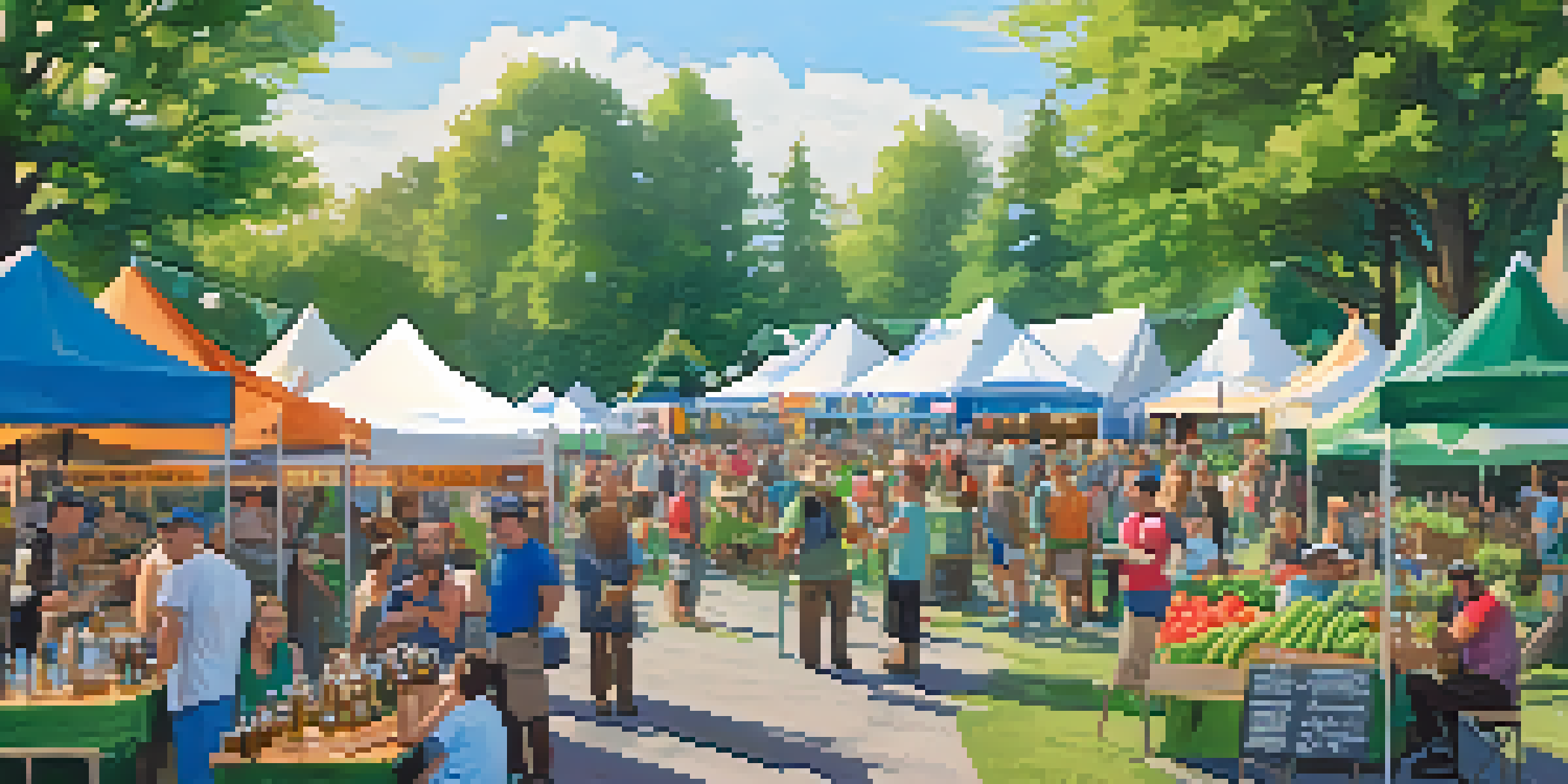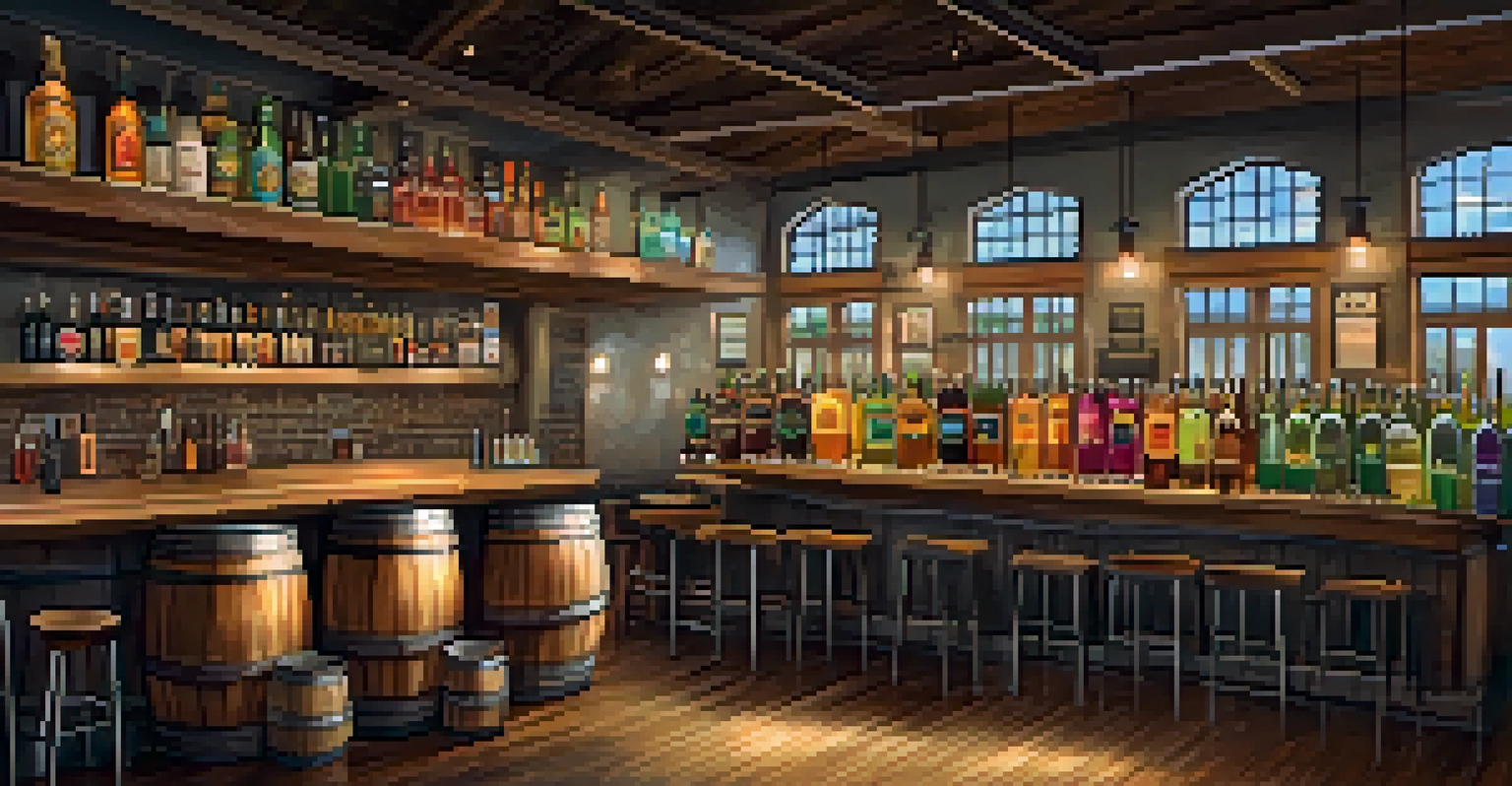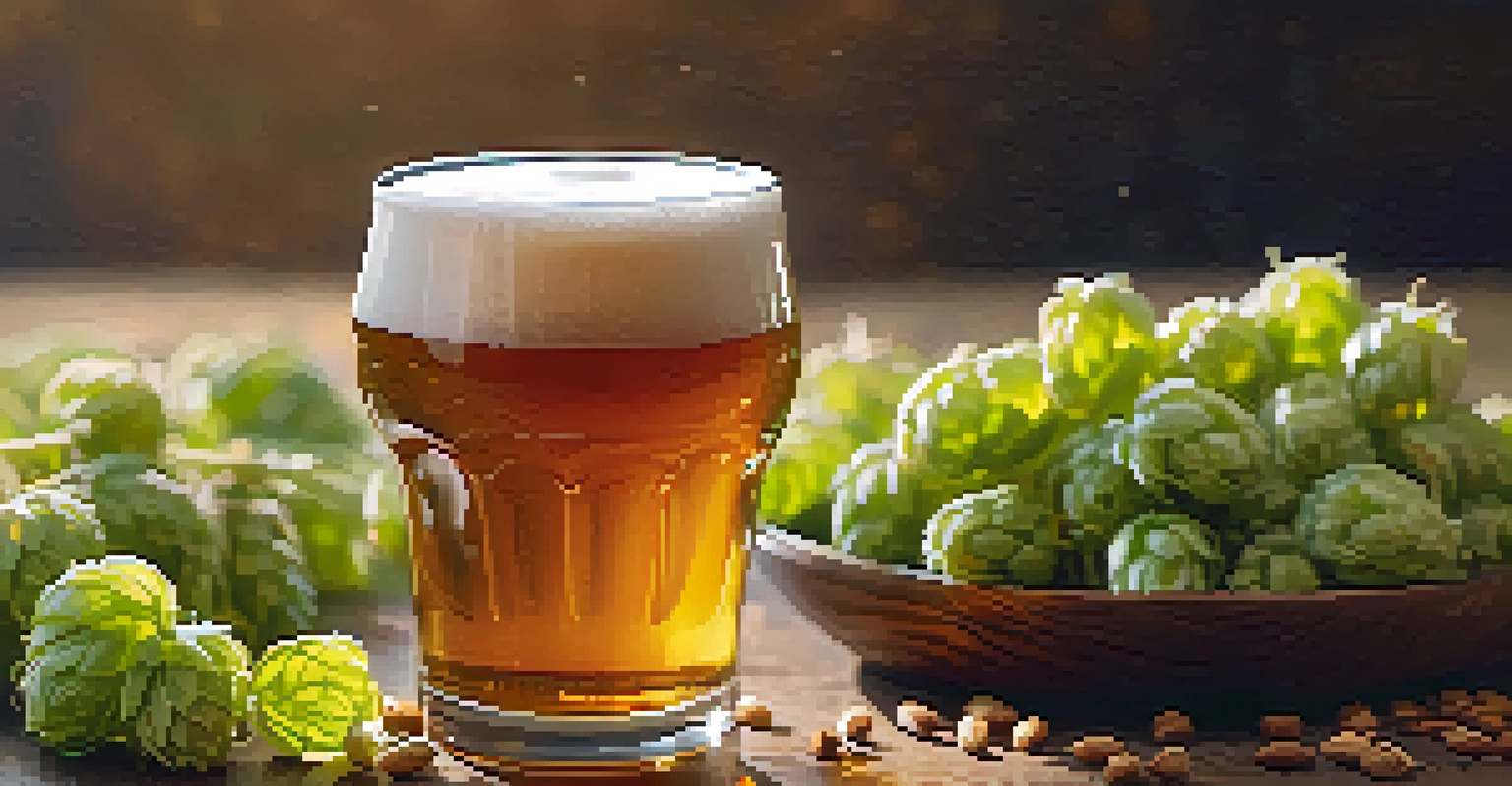Washington State's Craft Breweries and Local Ingredients

A Brief History of Craft Brewing in Washington State
Washington State has a rich brewing history that dates back to the late 19th century. However, the craft beer revolution really took off in the 1980s, with the opening of breweries like Pike Brewing Company in Seattle. This period marked a shift from mass-produced beers to a focus on quality, flavor, and local ingredients, setting the stage for today's vibrant craft brewing scene.
The craft beer movement is about quality, not quantity. It's about passion and the desire to create something that reflects the local landscape and culture.
As more breweries emerged, the state became a hub for innovative brewing techniques and styles. Washington's craft breweries are now known for their diverse range of beers, from hoppy IPAs to rich stouts, each reflecting the unique characteristics of the ingredients used. This evolution has turned Washington into one of the top beer-producing states in the U.S.
Today, the craft beer industry continues to grow, with over 400 breweries calling Washington home. This growth not only highlights the passion of local brewers but also emphasizes the importance of sourcing ingredients from nearby farms and producers, creating a sustainable community around brewing.
The Role of Local Ingredients in Craft Brewing
One of the defining features of Washington's craft breweries is their commitment to using local ingredients. Many brewers collaborate with farmers to source hops, barley, and even fruits and spices that are grown right in the region. This not only enhances the freshness and flavor of the beer but also supports the local economy.

Hops, in particular, thrive in Washington's climate, with the Yakima Valley being one of the top hop-producing regions in the world. This means brewers have access to a wide variety of hop flavors and aromas, which they can incorporate into their recipes. The result is a unique flavor profile that sets Washington beers apart from others.
Craft Brewing's Rich History
Washington State's craft brewing scene has evolved since the 1980s, shifting focus from mass production to quality and local ingredients.
By utilizing local ingredients, breweries are also reducing their carbon footprint, as they minimize transportation needs. This dedication to sustainability resonates with consumers who are increasingly looking for environmentally-friendly choices in their purchasing decisions.
Highlighting Unique Local Ingredients Used in Brewing
Beyond hops and barley, Washington breweries often experiment with a variety of local ingredients that add distinctive flavors to their beers. For instance, some brewers use fresh fruit from local orchards, like cherries from the Skagit Valley, to create refreshing fruit beers. This not only showcases regional produce but also offers drinkers a taste of the local landscape.
Sustainability isn't just a trend; it's a necessity for the future of our planet and brewing community.
Another interesting ingredient is Washington-grown honey, which can be used to create honey ales or meads. The sweetness and complexity of the honey add depth to the brews, making them stand out on the shelves. By incorporating these unique local ingredients, brewers are telling a story with each sip, connecting consumers to the land.
Moreover, some craft breweries even experiment with herbs and spices sourced from local farms, resulting in innovative flavors that surprise and delight. This creativity fosters a sense of community among brewers and local farmers, encouraging collaboration and experimentation.
Popular Craft Breweries in Washington State
Washington State boasts a plethora of renowned craft breweries, each contributing to the state's vibrant beer culture. One standout is Elysian Brewing Company, known for its creative and diverse range of beers, including their popular Avatar Jasmine IPA. This brewery exemplifies how local ingredients can be transformed into award-winning brews that captivate the palate.
Another notable mention is Fremont Brewing, which prioritizes sustainable practices and local sourcing. Their Field to Ferment program highlights their commitment to using local ingredients, creating a direct connection between the community and the beer. This transparency resonates with consumers who value knowing where their beer comes from.
Local Ingredients Matter
Breweries in Washington prioritize local ingredients, enhancing beer flavor and supporting the local economy while promoting sustainability.
Finally, we can't forget about Pike Brewing Company, a pioneer in the craft brewing scene. Their commitment to traditional brewing methods and local ingredients has earned them a loyal following and numerous awards. Visiting these breweries not only offers a taste of their unique beers but also an insight into the craft brewing process.
The Impact of Beer Festivals on Local Breweries
Beer festivals play a significant role in promoting Washington's craft breweries and their local ingredients. Events like the Washington Beer Festival bring together brewers and beer enthusiasts, creating a vibrant atmosphere where attendees can sample a wide variety of brews. These festivals provide an excellent platform for breweries to showcase their unique offerings and connect with potential customers.
Moreover, festivals often emphasize the importance of local ingredients, featuring educational sessions on sourcing and sustainability. This not only highlights the breweries' efforts but also informs consumers about the significance of supporting local agriculture. Engaging with the community in this way fosters a deeper appreciation for the craft behind each pint.
As a result, beer festivals contribute to the overall growth of the craft beer industry in Washington. They encourage collaboration among breweries and promote a sense of camaraderie that strengthens the local brewing community, ultimately benefiting everyone involved.
Sustainable Practices in Washington's Brewing Industry
Sustainability is becoming increasingly important in Washington's craft brewing landscape. Many breweries are adopting eco-friendly practices, such as using renewable energy sources and implementing water conservation techniques. This dedication to the environment reflects a growing awareness of the industry's impact on the planet.
Additionally, local sourcing of ingredients contributes to sustainability by reducing transportation emissions. Breweries are also finding innovative ways to use byproducts from the brewing process, such as repurposing spent grain for animal feed or baking. These practices not only minimize waste but also promote a circular economy within the community.
Future of Craft Brewing
The future of Washington's craft breweries looks bright, with innovation and sustainability driving new trends and community connections.
By prioritizing sustainability, Washington's craft breweries are setting an example for the industry as a whole. Consumers are increasingly drawn to brands that prioritize environmental responsibility, making it a key factor in their purchasing decisions.
The Future of Craft Brewing in Washington State
The future of craft brewing in Washington State looks promising, with a continuous influx of new breweries and innovative brewing techniques. As consumers become more adventurous in their beer choices, brewers are eager to experiment with flavors and ingredients, pushing the boundaries of traditional brewing. This creative spirit is likely to drive the industry forward.
Additionally, the growing emphasis on sustainability will shape the future landscape of craft brewing. As more breweries adopt eco-friendly practices and focus on local sourcing, we can expect to see a stronger connection between brewers and their communities. This trend will not only benefit the environment but also enhance the uniqueness of Washington's craft beers.

Ultimately, as Washington's craft breweries continue to thrive, they will remain a vital part of the state's culture and economy. By celebrating local ingredients and innovative brewing techniques, these breweries ensure that each pint tells a story, inviting drinkers to experience the rich heritage of Washington State with every sip.